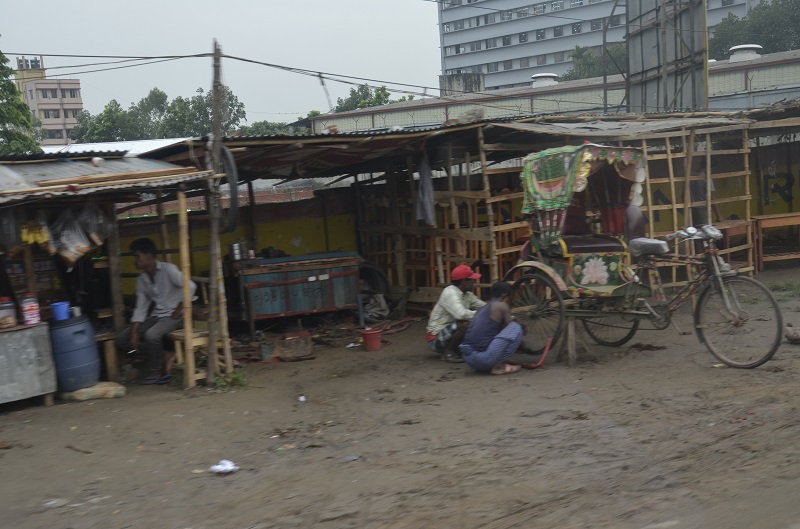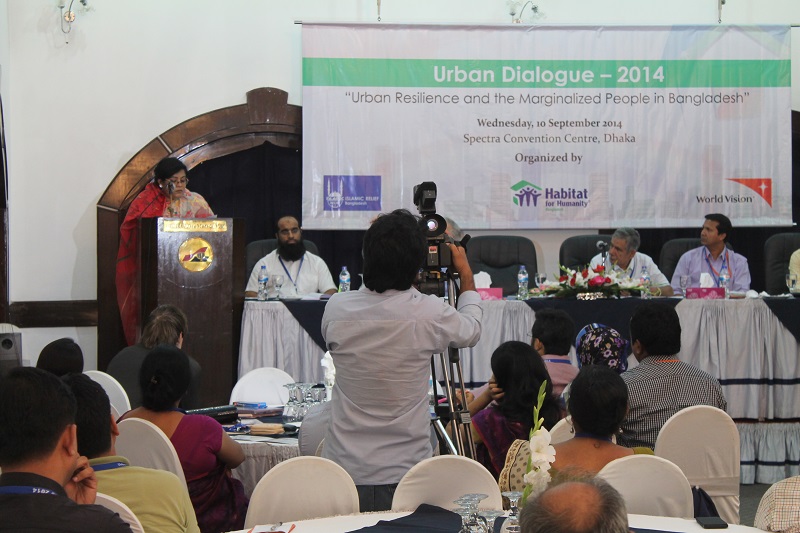Islamic Relief Bangladesh and partners have held a major conference designed to ensure that urban development meets the needs of city dwellers, including poor people living in slums.
In Bangladesh, nearly 60 per cent of the urban population is concentrated in just four cities: Dhaka, Chittagong, Rajshahi and Khulna. Urban populations have swelled beyond the capacity of existing infrastructure, increasing exclusion from basic services for the most vulnerable.
Shabel Firuz, Country Director, Islamic Relief Bangladesh, said: “The capital city-centric development strategy has led to an explosion in the size of Dhaka, but the infrastructure has failed to keep up. Green spaces and water sites are disappearing and slums have spread beside high rise buildings.

“The situation invariably affects the poorest communities the most, particularly as they face acute shortages in even basic services – including essential utilities, education, health, sanitation, and housing. Urban development policies must focus on the welfare of marginalised people and tackle poverty and suffering.”
To secure safe and healthy cities and towns for all, Islamic Relief teamed-up with Habitat for Humanity Bangladesh and World Vision Bangladesh to hold a conference bringing together service providers and city dwellers.
Public services and urban resilience for all
Held in Dhaka on 10 September, Urban Dialogue 2014 focused on inclusivity for marginalised people and aimed to ensure access to public services for all and urban resilience that leaves no one behind.

Representatives from the government of Bangladesh participated in the event, where found national and international NGOs and forums sharing their experiences on housing for urban slums, urban resilience, and development planning – as well as child rights child welfare and child development .
Dr Mohammad Maksudur Rahman, Associate Professor at the University of Dhaka, outlined the challenges facing the poorest people in urban context. These include the proliferation of informal settlements, lack of basic facilities such as water, electricity and sanitation, the degradation of the urban environment as well as other socio-economic issues which jeopardise their welfare and wellbeing.
Recommendations arising from the event included:
- Institutional reforms are essential, as is a long term vision for improving slums and informal settlements
- The rural-urban gap must be bridged, and urban governance enhanced with better coordination between agencies
- A drainage and canal network master plan must be developed and implemented
- Urban environmental management and planning requires greater leadership, as well as improved environmental awareness and access to environmental information
- A climate change policy is needed, and urban disaster risk reduction mechanisms should be improved.
Islamic Relief actively contributes to urban resilience in Bangladesh, delivering projects such as Resilience through Watershed Management, Risk Reduction and Development in Bangladesh (ReWARD).










